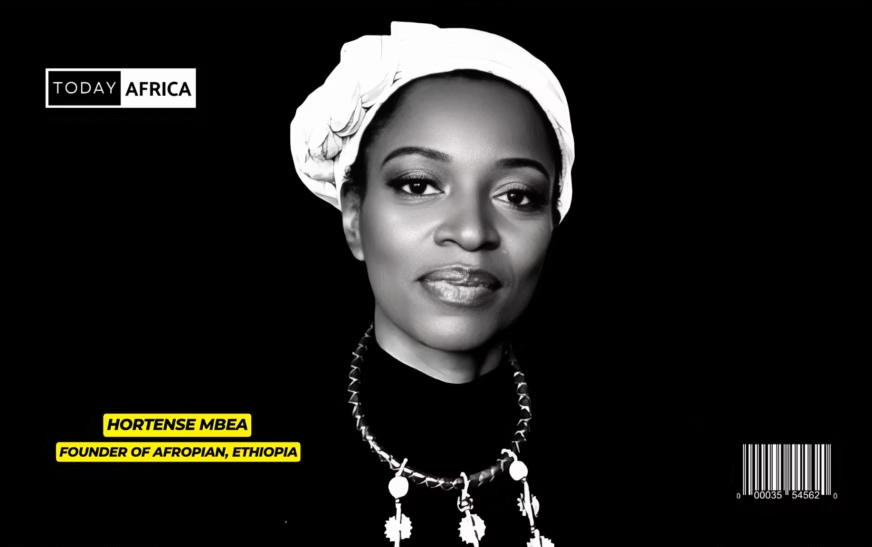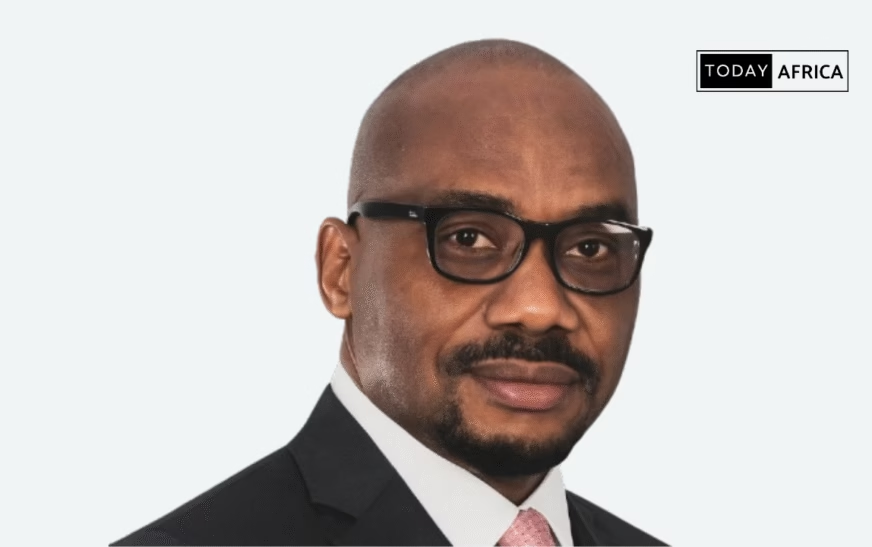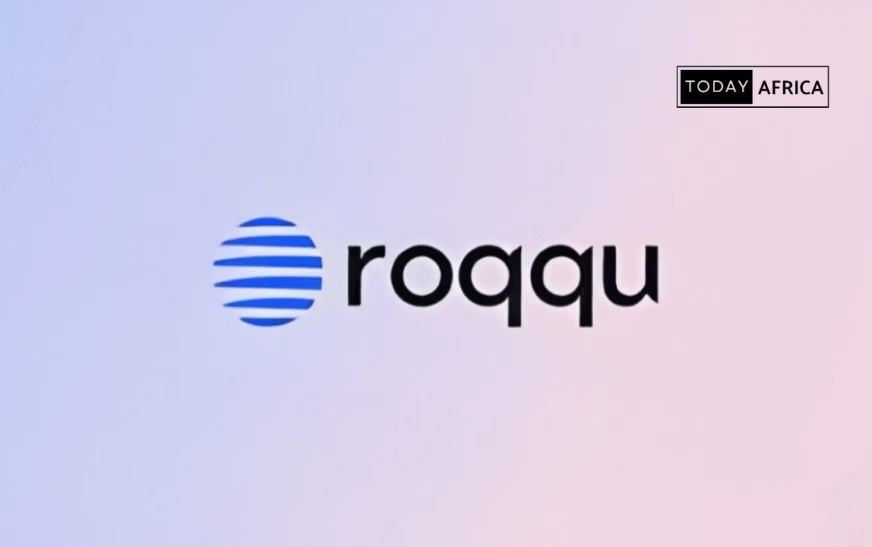What does it mean to wear Africa proudly? For Hortense Mbea, founder and creative director of Afropian, it’s more than fashion—it’s a love letter to Africa, a movement of storytelling, heritage, and pride stitched into every design.
Born in the United States to Cameroonian parents, raised across Western countries, and later rooted in Congo and Ethiopia, Hortense’s journey reflects the beauty of being deeply connected to multiple worlds while never losing sight of Africa.
Her story is not just about building a Pan-African fashion brand—it’s about challenging stereotypes, preserving culture, empowering artisans, and redefining excellence through African creativity.
From traveling the continent as an interpreter with the African Development Bank to creating one of Africa’s first AI-powered fashion films, Hortense embodies the resilience, innovation, and cultural richness that drive Africa’s creative industries today.
In this conversation, Hortense Mbea shares her journey of founding Afropian, her vision for African fashion, the lessons she has learned as an entrepreneur, and why she believes Africans must first learn to value and consume their own products before looking outward.
Tell us more about yourself
The story of Hortense Mbea begins with movement. Born in the United States to Cameroonian parents, her childhood was scattered across Western countries, stitched together with frequent returns to Africa.
But it wasn’t until her teenage years—when the family moved to Congo Brazzaville—that she felt the gravity of what it meant to live on the continent, not just visit.
“My parents made sure that we were very connected to the continent,” she recalls, “but it’s not the same when you actually move to Africa.” That move lit a flame that has never dimmed.
It is this experience that shaped Hortense’s identity as what she calls an “ambassador of African excellence.”
Today, she wears many hats: designer, founder, and creative director of Afropian; interpreter and translator by profession; mother; and seeker of healing through spirituality and natural medicine.
“I’ve lived and I still live several lives,” she says. “I am indeed a multifaceted African woman, as many of us are.”
What inspired you to start your business and why base it in Ethiopia?
Two decades ago, Hortense moved to Addis Ababa after finishing university, following her family who had settled there.
“It was quite natural for me to establish my brand there,” she explains.
Ethiopia embraced her, and she embraced it back. She married there, raised a family, and built roots.
Afropian was born out of frustration—and love.
Frustration at constantly having to explain to people abroad that Africa was not a monolith, not a single village, and certainly not a place where people rode crocodiles into Europe.
And love, because in every defense she gave, Hortense found herself articulating her deep admiration for the continent’s creativity, beauty, and connectedness.
“I always call Afropian my love letter to Africa,” she says. “Because I want to tell stories about the Africa that I know and that I love. Our stories of excellence, our past and current greatness. We’re cultural billionaires in Africa.”
See Also: How Amina Asu-Beks is Changing the Way Nigerians Shop
How did your background as an interpreter influence your creative and entrepreneurial vision?
Hortense’s first career was built in conference halls, not ateliers. As an interpreter for the African Development Bank, she traveled across the continent.
One program in particular—Fashionomics Africa—changed everything.
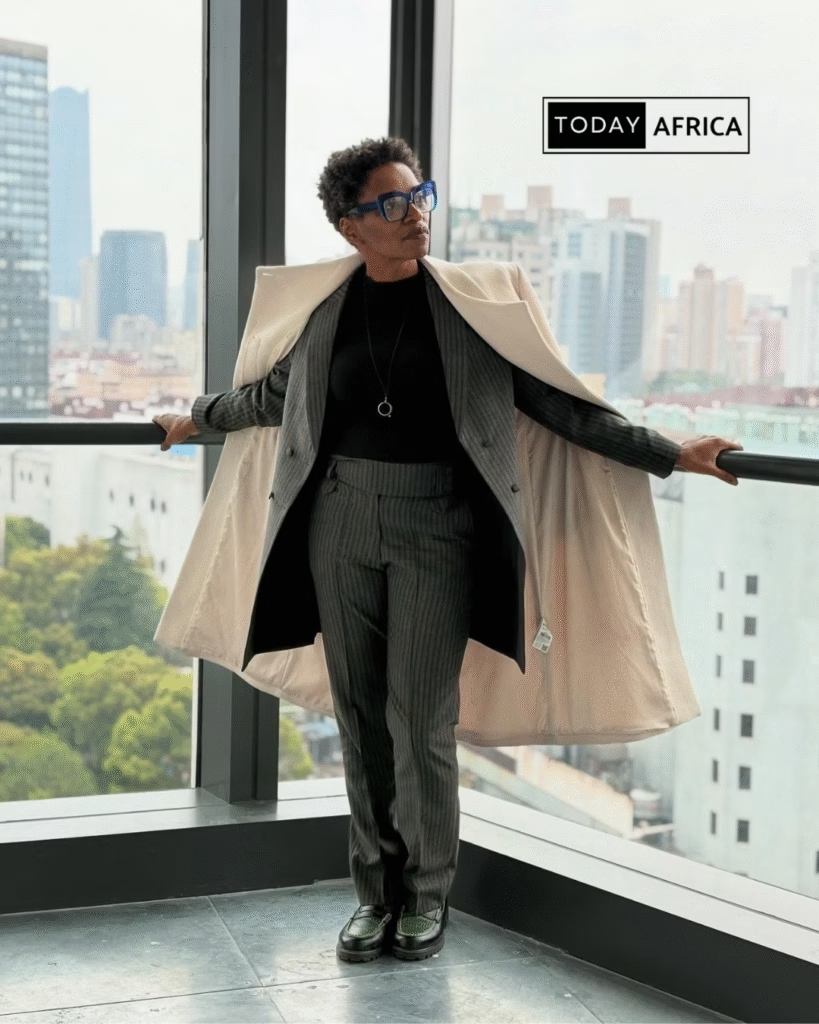
“They would take us to villages and cities in different countries to meet people in the creative industry,” she says. Those encounters sparked an idea: a network of artisans spanning the continent.
Traveling from country to country, Hortense began to see not only how different Africans were, but how profoundly similar.
“That’s the link between being an interpreter and being creative for me,” she reflects.
How does that feel when someone wears your products?
“When people wear my products, I hope they feel the warm embrace of my artisans,” Hortense says. Afropian’s artisans—spread across 15 African countries—pour their knowledge and love into every piece.
Her motto, Wear Africa Proudly, is both invitation and declaration. “We do not need to always turn outward and look for what comes from outside,” she insists. “We have everything we need in Africa. We have to be proud of what we have.”
How do we as Africans promote our products to the outside world?
For Hortense, the answer starts closer to home. “I don’t think that our target should firstly be the outside world. We need to target our own markets,” she says.
With 54 countries and billions of consumers, Africa itself is a vast starting point.
But she doesn’t shy away from the hard truth: “It’s a beautiful thing to say ‘promote made in Africa,’ but is made in Africa competitive? Is it up to standards? Is it quality? Is it affordable?”
Until those questions are answered with a resounding yes, African businesses will struggle to win both locally and abroad.
How do we encourage Africans to consume our products proudly?
“Education,” she says without hesitation. For Hortense, everything hinges on undoing centuries of indoctrination that taught Africans to look outward for validation.
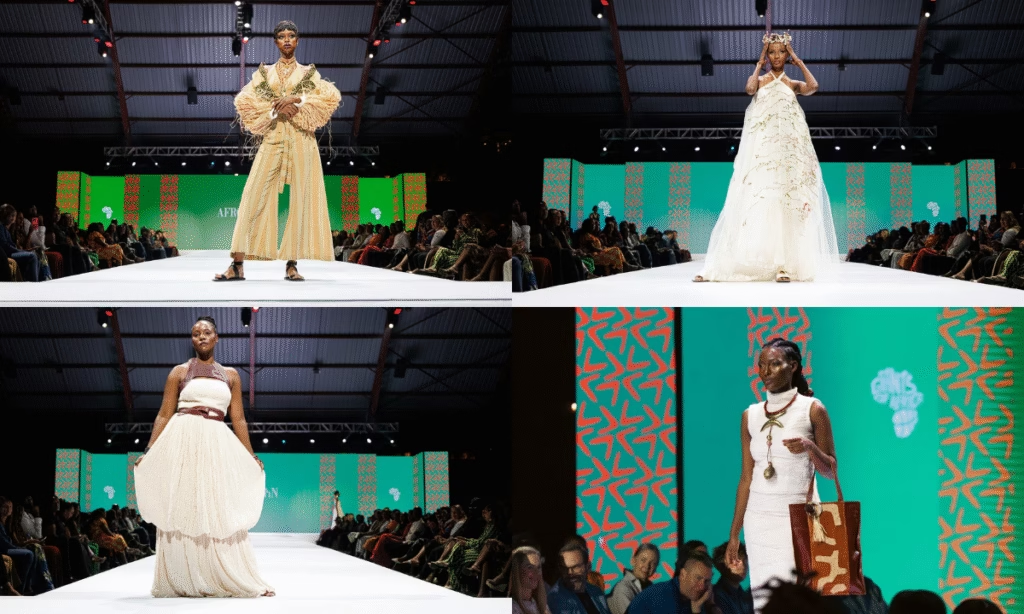
“We have been brainwashed, including Africans, African-Americans, diaspora. We’ve been taught to hate ourselves,” she says.
Western branding, she argues, has been so effective that Africans themselves came to believe inferiority was natural.
But she’s optimistic. “Once Africans know that they are not inferior… they will only want to consume African.”
From natural hair to traditional fabrics, she believes teaching pride must start with children. “We have to reverse this brainwashing. We’ve all been contaminated by this virus, but there’s still hope.”
Read Also: Why Sarah Olagoke Believes Women’s Health is the Key to Community Growth
What does sustainability mean to you beyond the materials?
People call her the “fashion griot.” And she embraces the title. “The first thing for me with my brand is storytelling. It’s telling the story so we don’t forget them,” she explains.
But sustainability, for Hortense, has layers: cultural preservation, fair wages for artisans, economic continuity for communities, and environmental respect.
In Ethiopia, she often organizes donations or community visits, ensuring her brand gives back to those who sustain it.
“Africans naturally tend to respect our environment,” she adds. “We don’t overconsume. We don’t pollute the rivers that feed us. So environmental sustainability is something that already comes naturally to us.”
Why did you decide to use AI to produce your film ‘Neema’?
The idea for Neema came in a dream. Hortense envisioned a woman who embodied the spirit of Africa: everything she touched turned to gold.
She built an entire collection around this figure, imagining her as the spirit of the forest.
When she was invited to present at the Giants of Africa Festival in Kigali, organized by Masai Ujiri and his wife Ramatou, Hortense wanted to unveil Neema in the grandest way possible—a fashion film.
But Addis Ababa’s rainy season had other plans. Shooting outdoors was impossible.
“Something told me, why don’t you try AI?” she recalls. Within a week, working with a digital artist, she produced what became one of Africa’s first AI fashion films.
“We’re always told we don’t adopt technology early in Africa. At least for this, I wanted to be among the early adopters.”
What was one unexpected connection or story that came from working with artisans?
Hortense’s artisans, spread across Mali, Ethiopia, Côte d’Ivoire, and beyond, are more than craftspeople to her. “I don’t see them as artisans,” she insists. “What they make is art to me.”
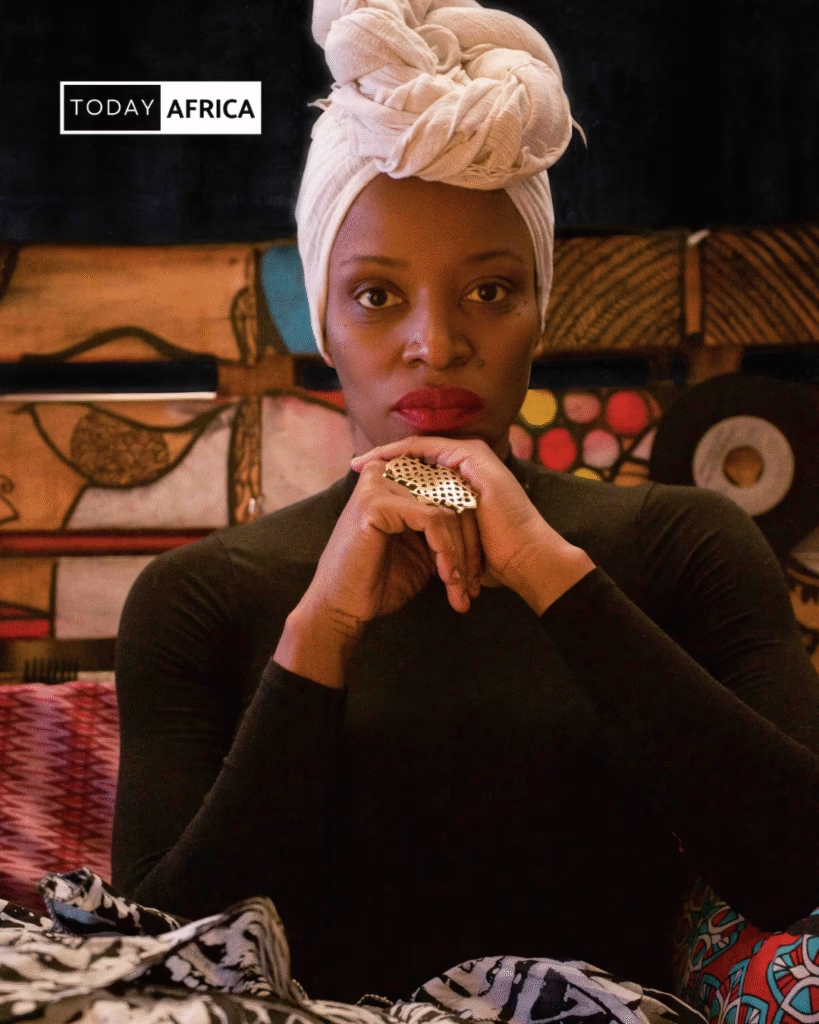
And yet, one of the most striking patterns she’s noticed is not about their art but their lives. “A lot of these women, when they start working, they kick out their husbands,” she says with a laugh.
Many found empowerment—and independence—through financial self-sufficiency.
In Mali, her weavers have built schools, clinics, and even their own cotton farms. In Ethiopia, workshops double as daycare centers, where babies learn to crawl between looms.
“It’s amazing the stories of resilience and women empowerment that I get exposed to,” she says.
See Also: How Victor Ogunbiyi is Using AI to Help Kids with Dyslexia, ADHD & Autism
How did you raise capital to start your business?
“I dug in my own pocket,” Hortense says plainly. In 2017, she invested $10,000 from her savings—money that quickly paid itself back.
Grants and accelerator programs followed, from the German cooperation to the British Council, offering not only funding but training and networks.
Her advice: seek “free money” before loans. “There are opportunities for African designers, especially women,” she emphasizes. “Take a chance and invest your own money if you can. But also look out for grants, incubators, and accelerators.”
What strategies are you using to market your products?
Travel, Hortense says, has been her greatest marketing tool. From fashion weeks to trade fairs, she thrives on human connection.
“Some entrepreneurs are shy. But I love to meet people. And in conversation, I will communicate my passion.”
Storytelling is her signature. A piece of jewelry or cloth, in her hands, becomes a portal to history.
That intimacy has built a loyal base. Online, Instagram plays a central role, while her website—currently under construction and her blog has long been a place where she documents her adventures and interviews.
“There’s also a lot of free travel available, especially to African entrepreneurs, if you meet certain requirements,” she advises. “You can’t be lazy. You have to research and take those opportunities.”
What trends are shaping the fashion industry in Africa?
When Hortense launched Afropian in 2017, few designers insisted on making everything in Africa. Now, she says, that has shifted. “There’s a trend towards natural fibers, raffia, woven fabrics like Bogolan, Baoli, Kente. We’re really going back to our roots.”
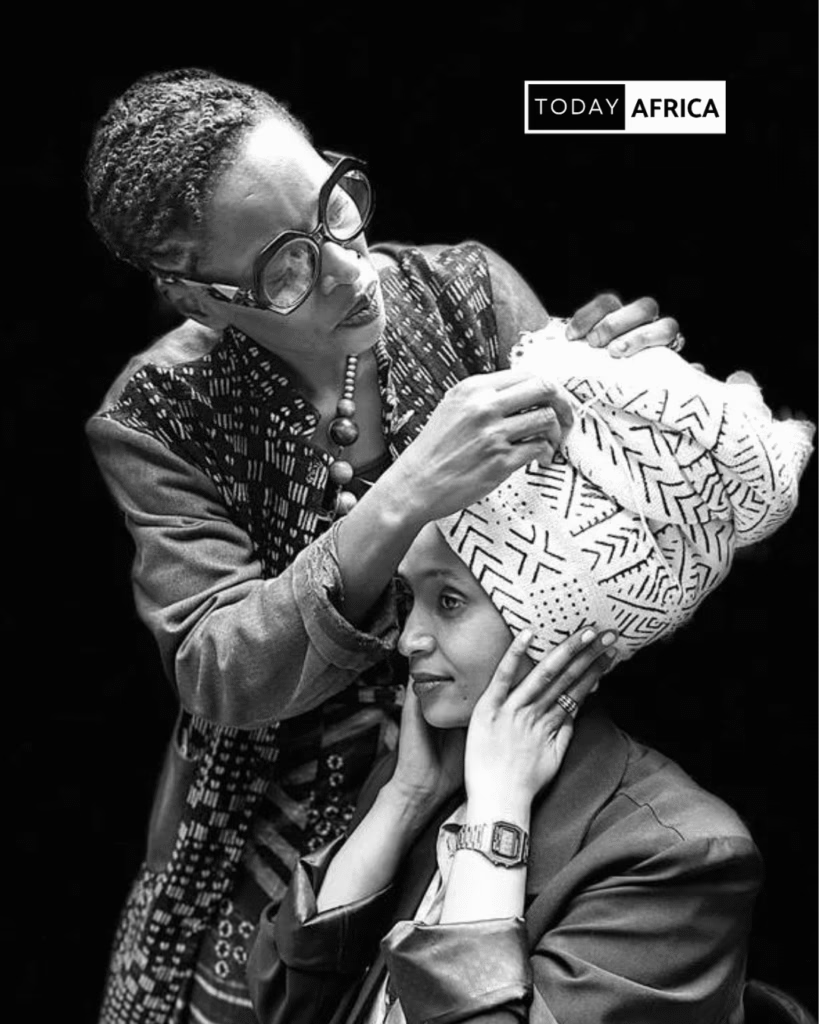
How did you build systems and processes for your business?
Running a brand with artisans scattered across the continent requires precision. Hortense built a supply chain that centralizes shipments in hubs like Abidjan, Tunis, and Johannesburg before moving goods to Addis.
Automation has also helped. From QR codes for payments to production schedules that run smoothly without her presence, the system is lean but reliable.
“I don’t have a big team,” she says. “But everyone knows their role and does it efficiently.”
Read Also: Why Thuli Zikalala Left a 9–5 Job to Serve South Africa’s Deaf Community
How do you balance being a mother, entrepreneur, and traveler?
“My family comes first,” Hortense says. Her children, who grew up traveling alongside her, are now seasoned companions. Lists—her favorite tool—keep her grounded. “You have to prioritize and plan. To succeed, you must plan.”
How do you balance honoring tradition while innovating your designs?
“I don’t do Afrofuturism,” she says. “I want to be rooted in the present, while knowing where I come from.” For Hortense, natural fibers like Ethiopian cotton or silk offer both tradition and practicality. “Our fabrics lend themselves very well to modern interpretation,” she explains.
What role does AI play in promoting African fashion?
Hortense calls AI a “double-edged sword.” While her AI fashion film was a triumph—costing one-tenth of a traditional production—she warns against overreliance. “We cannot allow technology to replace the human touch. AI is a tool, not the creator.”
Where do you see Afropian in the next five years?
She envisions growth beyond fashion: events, community building, and global expansion. “As a baby should, I see it growing,” she says.
What is the proudest moment you are still working towards?
“I’m open,” she says. “My dream is that there’s no limit. We can all do anything we set our minds to.” For Hortense, legacy and impact matter more than milestones.
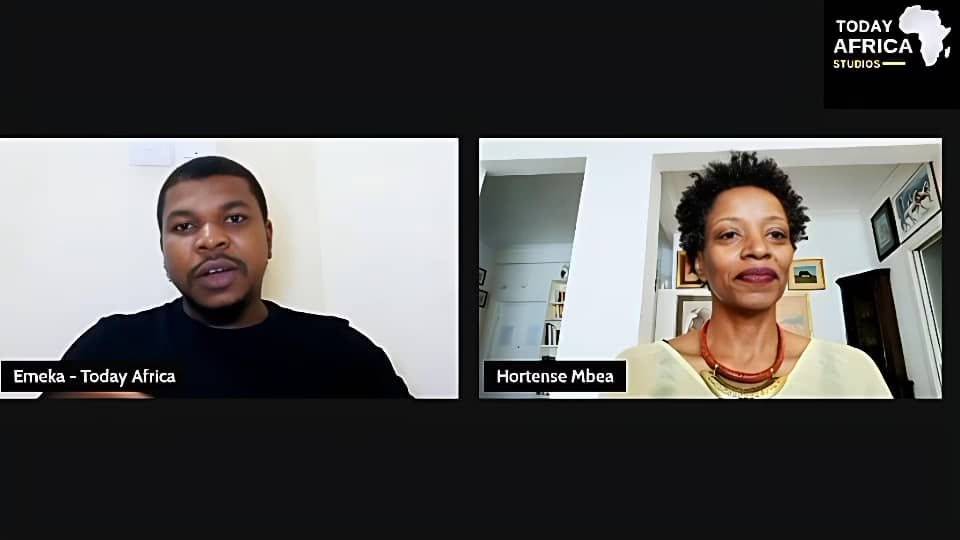
What lessons have you learned in your journey as an entrepreneur?
Her biggest lesson is simple: “Always have a plan B.” Working across Africa is rewarding but unpredictable. Suppliers disappear, deadlines slip. Resilience, she says, is non-negotiable. “People will disappoint you. But that’s an opportunity to learn, to grow, to become more resilient.”
Read Also: Why Divine Idokoh Believes Bees Can Save Nigeria’s Agricultural Sector
What advice would you give to women who want to start their business?
“You have to know yourself,” Hortense says. “Don’t go into business because your cousin is doing it. What is your why?”
Her why—love for Africa and its excellence—fuels her through setbacks. For others, she prescribes systems, mentorship, resilience, and purpose. “Anything that promotes longevity, seek that.
Because the goal is to be profitable—and that takes time. You have to last as long as possible.”
Contact or follow Hortense Mbea:
Leave a comment and follow us on social media for more tips:
- Facebook: Today Africa
- Instagram: Today Africa
- Twitter: Today Africa
- LinkedIn: Today Africa
- YouTube: Today Africa Studio

